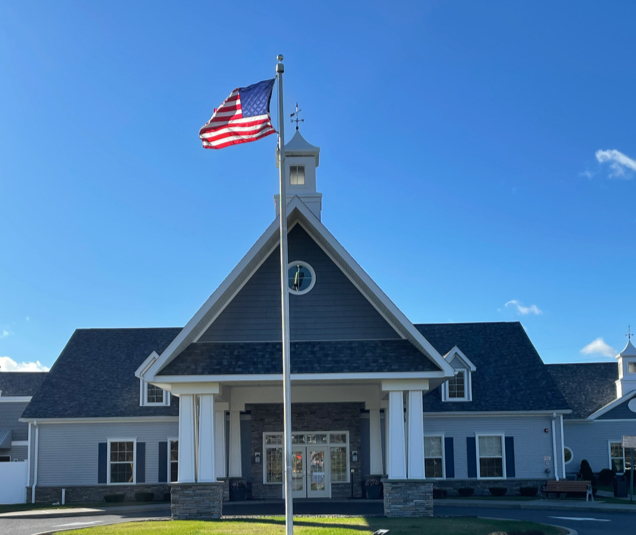Experiencing memory lapses can be concerning, particularly as we grow older. When older adults begin experiencing memory lapses more frequently, they may wonder whether it’s normal aging or dementia.
It’s normal to forget things once in a while at any age, and as you grow older, you may forget things more often. Mild forgetfulness and age-related forgetfulness are often a normal part of aging—dementia is not. Dementia involves significant loss of memory and cognitive functioning, affecting the ability to think, learn, remember, and make judgments. People with dementia often exhibit communication difficulties and uncharacteristic behavior, which requires a special approach.
Understanding Forgetfulness
Forgetfulness is a normal aspect of aging and everyday life. We’ve all faced moments of misplacing items, forgetting names, or losing our train of thought. Generally, these instances are harmless and not a cause for alarm.
Causes of Forgetfulness
Various factors can contribute to forgetfulness:
- Stress: High stress levels temporarily impair cognitive functions. Stress hormones like cortisol may hinder the brain’s ability to store and recall information, making it challenging to focus.
- Sleep Deprivation: Insufficient sleep disrupts memory consolidation—the process through which the brain organizes and retains information. Without enough rest, our ability to remember new information declines.
- Medications: Some medications, including those for allergies, hypertension, or depression, can interfere with memory. Side effects may alter brain chemistry or induce drowsiness, complicating memory retention and recall.
- Lifestyle Factors: Poor diet, lack of physical activity, and insufficient mental engagement can all contribute to forgetfulness. A nutritious diet supports brain health, regular exercise boosts blood flow to the brain, and mental challenges, like puzzles or new skills, help stimulate and maintain cognitive function.
By recognizing these contributing factors, we can take proactive steps to enhance our memory and cognitive health.
Characteristics of Forgetfulness
- Occasional memory lapses that do not affect daily life
- Ability to remember later what was initially forgotten
- Retaining the ability to follow instructions and engage in conversations
- No significant impact on social relationships or work performance
What Is Dementia?
Dementia is not a single disease but a term encompassing various symptoms linked to a loss of memory, communication, and other cognitive skills. Dementia can significantly affect a person’s ability to perform everyday tasks. Alzheimer’s disease is the most common form of dementia.
Characteristics of Dementia
- Progressive memory loss that disrupts daily activities and independence
- Challenges in problem-solving, decision-making, and planning
- Confusion with time or place and difficulty understanding visual information
- Difficulty finding words, communicating clearly, and understanding
- Changes in mood and personality, including confusion, depression, and aggression
- Withdrawal from work, social activities, hobbies, and other interests

Key Differences Between Forgetfulness and Dementia
While both mild forgetfulness and dementia deal with memory, their severity, frequency, and accompanying symptoms distinguish them.
- Impact on Daily Life: Forgetfulness generally does not disrupt daily functioning. You may misplace your glasses but can easily find them later. In contrast, dementia can hinder basic tasks, such as dressing or cooking, and may lead to disorientation in familiar environments.
- Progression Over Time: Forgetfulness remains relatively stable, whereas dementia tends to worsen, and symptoms intensify over time.
- Associated Symptoms: Forgetfulness typically won’t show other symptoms, while dementia is characterized by a range of symptoms, including impaired judgment, language difficulties, and behavioral changes.
When to Seek Help
Monitoring the frequency and impact of memory lapses is important. Watch out for signs of significant cognitive decline, such as:
- Frequent forgetfulness disrupting daily life
- Inability to complete familiar tasks
- Problems with speaking or writing.
- Poor judgment and decision-making
- Mood swings and personality changes
- Wandering and getting lost
If your loved one exhibits signs that resemble dementia rather than typical forgetfulness, it’s crucial to seek professional advice. Early diagnosis can significantly influence treatment options and outcomes.
What Is Memory Care?
Since dementia can significantly impact a person’s abilities to think, reason, and communicate, being a primary caregiver to someone with dementia can become complicated.
Memory care can be an ideal choice for seniors living with dementia, helping enhance dignity and quality of life. Specially-trained staff are prepared to support residents with respect, understanding, and compassion.
When to Consider Memory Care
If you’re worried about your loved one’s ability to safely maintain their well-being, or if you need support helping your loved one thrive, it’s time to think about memory care.
Memory care can provide your loved one support with daily activities, medication management, and daily meals. And with opportunities to pursue hobbies and attend social events, memory care can offer you peace of mind knowing that your loved one is receiving the comprehensive care they need,
Is Memory Care Right for Your Loved One?
Understanding the difference between forgetfulness and dementia empowers you to make informed decisions regarding care. By recognizing early warning signs and pursuing appropriate support, you can help your loved one enhance their quality of life.
At Peregrine Senior Living at Colonie, we offer compassionate care and support for individuals experiencing memory loss. Our personalized programs are designed to enhance quality of life and provide peace of mind for families and caregivers. Consider scheduling a tour with us today.













Dining at our community is about more than what’s on the plate—it’s about connection, community, and the joy of gathering together.
Our talented culinary team crafts meals that are both delicious and nutritious, offering flavors that comfort and inspire.
From themed dinners to chef demonstrations, each meal becomes an opportunity to savor the moment and celebrate life’s simple pleasures. 🍴
peregrinecolonie.com/ ... See MoreSee Less
0 CommentsComment on Facebook
Today we celebrate the caregivers—those whose quiet strength and unwavering compassion bring comfort to so many.
We see the difference caregivers make every day: holding a hand, sharing a smile, or offering reassurance when it’s needed most. 💕
Your dedication reminds us that true care goes beyond tasks—it’s an act of love, patience, and humanity.
Thank you for all you do to make the world a more compassionate place.
peregrinecolonie.com/ ... See MoreSee Less
2 CommentsComment on Facebook
Peregrine Cooking Demo with Chef Patrick! 🧑🍳
In honor of the Olympics being hosted in Italy, we learned about the history of Italian cuisine, made our own dough from scratch, and crafted personalized calzones! 🇮🇹 They were delizioso! 😋 ... See MoreSee Less
1 CommentsComment on Facebook
Red roses?? I thought you said wet noses!!
We puckered up for some puppy lovin’ at our Kissing Booth! 💋🐾
Happy V-Day from our cutest valentines, Abby & Charlie! 🐶❤️ ... See MoreSee Less
1 CommentsComment on Facebook
Relationship advice loading 🔄 our ladies shared their words of wisdom while enjoying fresh, homemade chocolate covered strawberries and sugar cookies.
What do you think is the Secret to Love?? 💕 ... See MoreSee Less
3 CommentsComment on Facebook
Happy Valentine’s Day! ❤️
Love takes many forms—between partners, friends, families, and even across generations.
Today we celebrate the love that fills our community: the care shared between residents and team members, the laughter that brightens our halls, and the sense of belonging that reminds us we’re never alone.
May your day be filled with connection, warmth, and heart.
peregrinecolonie.com/ ... See MoreSee Less
0 CommentsComment on Facebook
What an incredibly special day today - celebrating the love stories of our residents and their partners that have stood the test of time. Years may pass, but true love only grows stronger 💕
Lunch courtesy of Chef Vic; featuring his signature meal “Pasta a la Rustica” and “Ragout de Fruit en Feuilletage” for dessert.
Thank you to everyone who made today possible. Happy Valentines Day from all of us here at Peregrine Colonie ❤️ ... See MoreSee Less
6 CommentsComment on Facebook